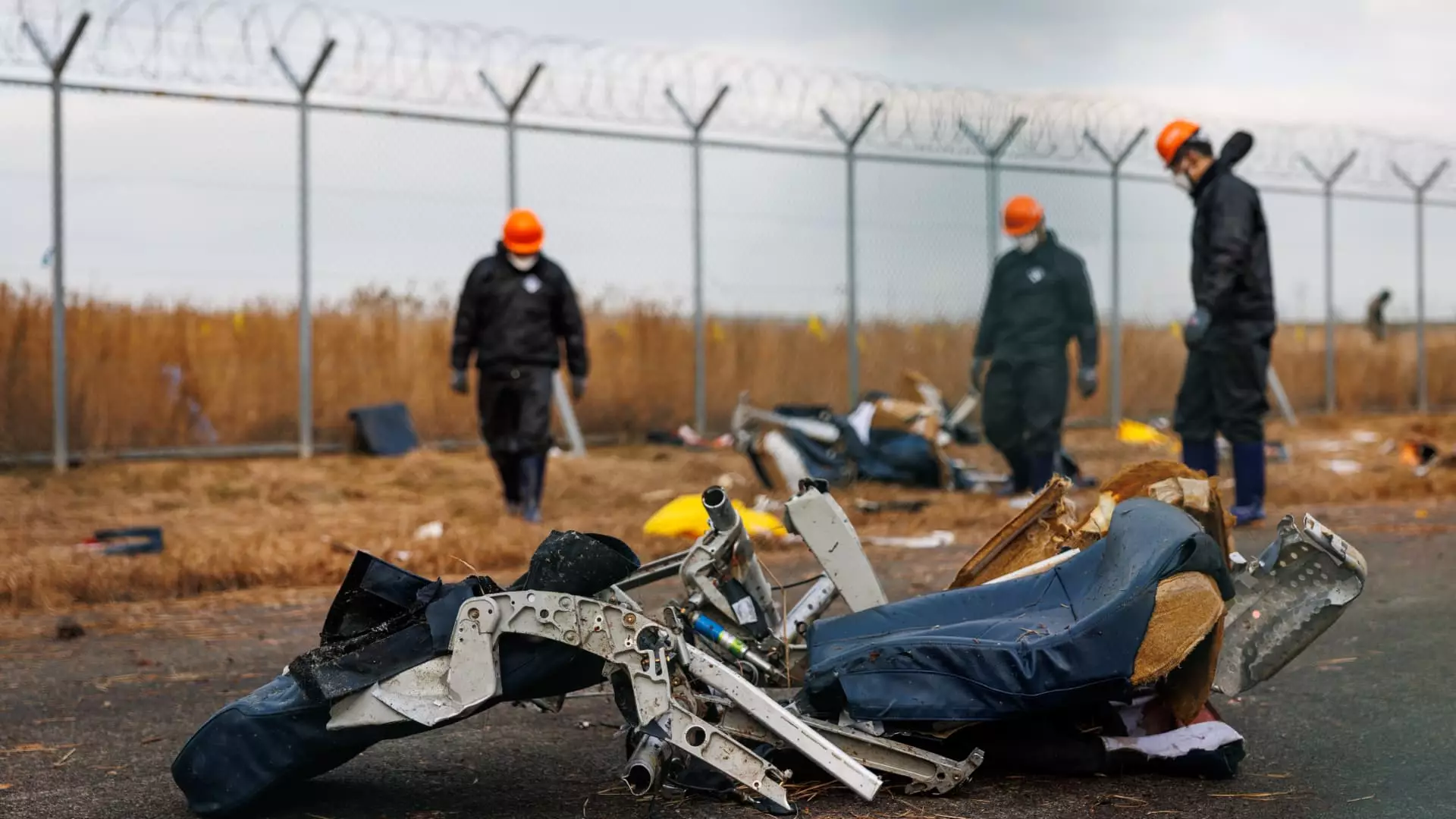In a stark illustration of how quickly investor sentiment can shift, Boeing’s stock price plunged nearly 5% in premarket trading following a catastrophic incident involving a Jeju Air B737-800. This significant decline reflects the anxiety swirling around the safety of this airplane model, particularly in light of the tragic accident that claimed the lives of 179 passengers and crew members. The market’s response is indicative of the broader implications this crash may have not just for Boeing, but also for the aviation industry as a whole.
The immediate aftermath saw Boeing shares down about 4.7% before slightly recovering to a 4% decrease, as market analysts and investors began to reassess their confidence in the manufacturer. Such fluctuations highlight how incidents of this nature can have immediate repercussions, as stakeholders react to the uncertainty surrounding safety protocols and the potential for regulatory scrutiny.
The crash itself, which occurred during an attempted landing at Muan International Airport, raises more questions than answers. Reports indicate that the aircraft landed without its landing gear deployed, skidding off the runway before colliding with a wall and igniting. The harrowing details surrounding the incident are chilling—the pilot’s report of a “bird strike” shortly after a warning from the control tower adds a layer of complexity to the investigation. The situation became even more dire when the aircraft issued a “Mayday” call, which emphasizes the pilot’s urgency in attempting to abort the landing.
This incident not only magnifies concerns regarding the B737-800 model, but it also spotlights the critical importance of operational checks and readiness in flight operations. The survival of two crew members is a small consolation amid a tragic loss of life, and the incident underscores the need for thorough investigations into the circumstances leading up to the crash.
The South Korean Ministry of Land, Infrastructure, and Transport (MOLIT) has responded vigorously, launching an emergency inspection not just of the ill-fated aircraft, but of all B737-800 models within its jurisdiction. This immediate action reflects a growing wariness about the model’s safety in the wake of the incident, especially since it plays a significant role in regional air travel—most notably through low-cost carriers like Jeju Air, which operates 39 of the jets.
These regulatory measures could have long-lasting consequences for Boeing and airlines operating the B737-800. The MOLIT has promised a “comprehensive special inspection,” focusing on operational records, maintenance practices, and compliance with safety regulations. Furthermore, there’s a growing emphasis on evaluating procedures relating to bird strikes—identified as a potential cause of the accident—which could modify regulations moving forward.
While the focus remains on Boeing, it’s essential also to consider the implications for Jeju Air and other airlines operating the same model. Jeju Air saw its shares fall to an all-time low as investors reacted to the incident and its potential fallout. Song Kyung-hoon, head of Jeju Air’s support office, assured the public of their commitment to the victims’ families and downplayed mechanical failure as a cause for the accident. However, such reassurances may not suffice in an environment where public trust is fragile.
As the investigation unfolds, the ancillary effects can ripple through the broader industry, affecting operational strategies, insurance rates, and customer perceptions of air safety. With low-cost carriers facing scrutiny, their operational models may require reevaluation to ensure compliance with possibly new regulations that arise from this tragic event.
The B737-800 has been a stalwart in Boeing’s lineup for nearly three decades, but the recent crash raises questions about its future in the skies. While the planes have a strong safety record overall, any concerns stemming from incidents like this could drive demand for newer models or alternative aircraft altogether. Examining the current climate of air travel, it’s clear that maintaining passenger trust is paramount for airlines and aircraft manufacturers alike.
The recent Jeju Air crash provides a sobering reminder of the fragility of aviation safety. As investigations proceed, the consequences for Boeing and the airlines involved will likely unfold in ways that are unpredictable and significant. The coming weeks and months will be critical in establishing not only accountability but also a renewed commitment to safety across the aviation industry.

